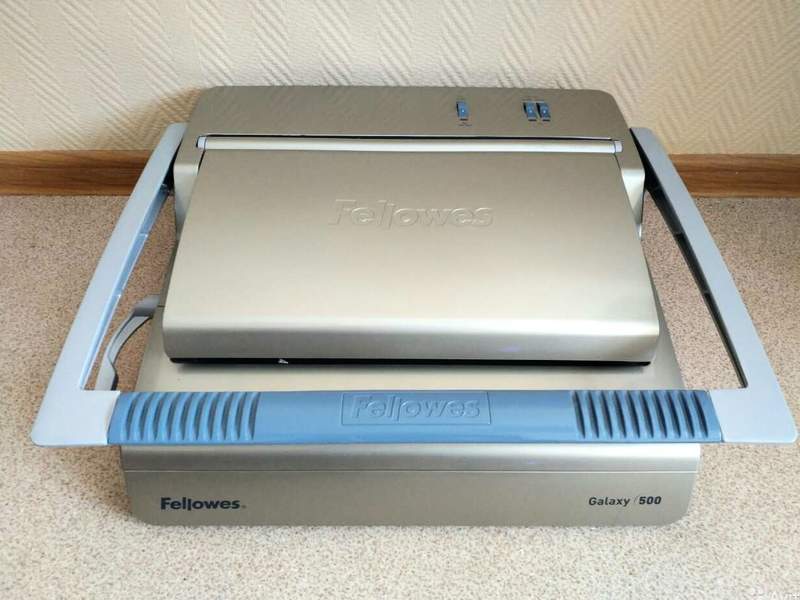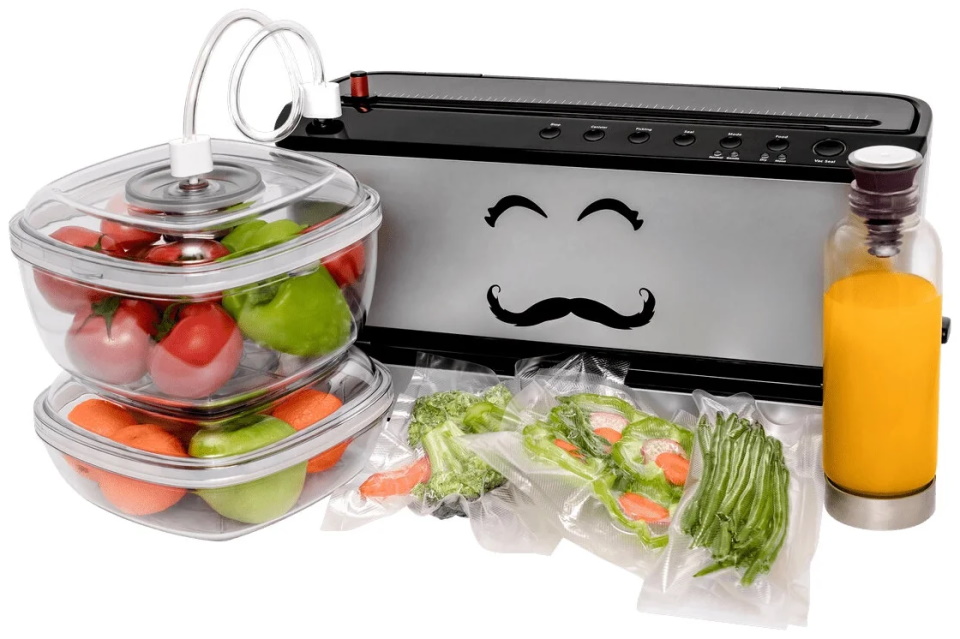Rating of the best tomato sauces for 2025
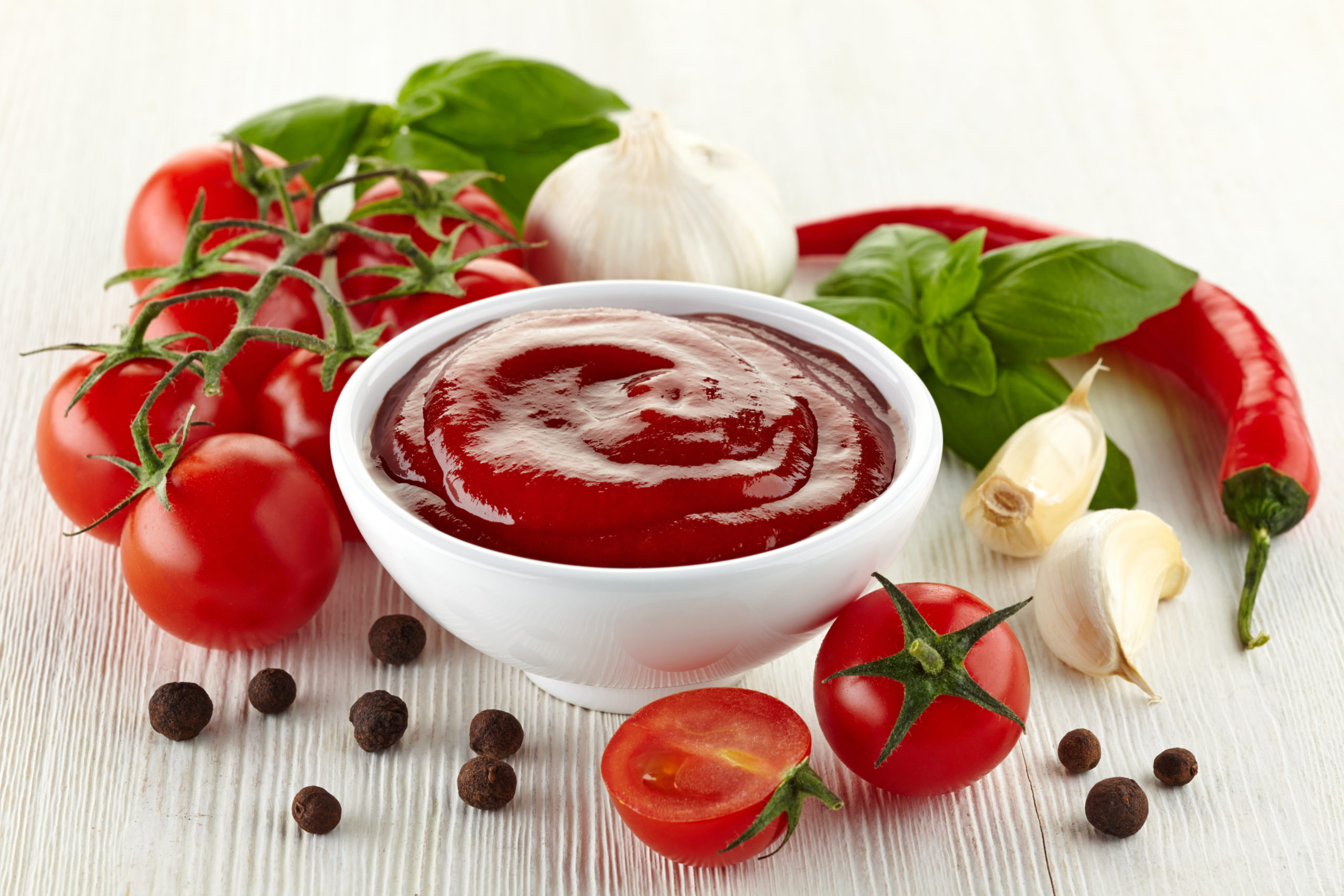
Tomato sauce is probably a universal seasoning for any dish. Be it pasta, non-dairy cereals, fish or meat.
Content [Hide]
Quality sauce - what is it
A good product consists only of tomatoes of varying degrees of crushing, water, salt, spices, herbs and citric acid, which gives the sauce a piquant sourness and at the same time acts as a preservative.
According to GOST, tomato ketchups (sauces) are divided into several categories:
- extra - with a content of chopped tomatoes (paste) of at least 40%;
- the highest - there are already fewer tomatoes or pasta here, only 30%, plus the addition of apple and vegetable puree is allowed;
- the first - concentrated tomato products, flavors (natural or identical to natural) are used for production;
- the second is a product of tomato paste, vegetable puree, stabilizers, dyes and starch.
Starch or pectin masks the lack of basic raw materials, makes the sauce thicker. Since such a surrogate does not have a pronounced aroma and taste, monosodium glutamate and a dye are added to the mass to give the ketchup a bright red color. Sometimes apple puree is added to the mass, less often vegetable puree - this can be determined by a brownish tint.
A product with vinegar in the composition is also not worth taking. Finding information about its origin (natural or synthetic) on the packaging is unrealistic, and besides, vinegar is not needed to preserve the sauce from high-quality raw materials.
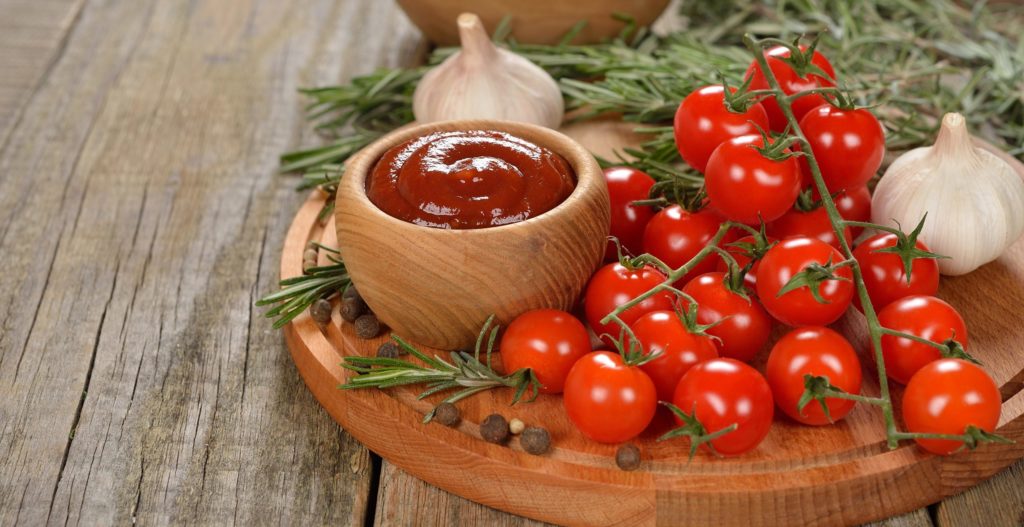
Glass, plastic or soft packaging
Glass is an environmentally friendly material, which also allows the product to be sterilized (which means no preservatives are needed). Plus, you can evaluate the color and consistency of the sauce before buying. Of the minuses of such packaging is the price, which ultimately affects the final cost and not very convenient use, it is problematic to dispense ketchup from a glass bottle with a wide neck.
Plastic packaging is more convenient, but when choosing, you should pay attention to the expiration date.If it is less than six months - the product is natural, if more - preservatives are included.
Doypack is a soft multi-layer packaging with a miniature screw cap. It withstands high temperatures, so the sauce is packaged hot, protects against oxidation and does not require the use of preservatives. Of the minuses - it will not work to evaluate the color, uniformity and density of the product before buying.
Best before date
Depends on the production technology. According to GOST, the recommended shelf life of sterilized or hot-filled ketchups in sealed glass containers is 2 and 1 year, respectively.
For unsterilized products with preservatives in the composition, the shelf life is 12 months (in glass containers), 6 months - for ketchups in plastic.
It is worth considering the fact that the manufacturer sets the expiration date independently, i.e. it may differ from the recommended one, so for reinsurance it is worth taking only fresh sauces.

How to choose
It is better to take ketchup in glass jars - you can evaluate the color, texture even before buying. Ideally, the product should be homogeneous. Small particles of tomatoes, herbs, spices are allowed.
Carefully inspect the package for bubbles. If there is, then the fermentation process has begun, which, in turn, indicates a violation of the production process.
Label - you should pay attention to the category, composition, expiration date. The components in the list are arranged in descending order, so if water is in the first place, then you can no longer read further.In such a product, the lack of tomato paste, most likely, will be compensated at best by vegetable puree, which will affect the taste, at worst - by starch, flavorings and identical natural additives. If we talk about the shelf life, then for natural products it is 5-7 days after opening the can.
If you want to add spice to ready-made dishes, the same mashed potatoes, for example, you can stop at ketchup, and if you are going to use the product for cooking pizza, lasagna or spaghetti, it is better to take tomato sauce. The fact is that when heated, ketchup will “give out” acetic notes and unpleasant acid.
The last one is the production date. Tomatoes for ketchup or sauce are usually processed during the ripening season, so you should take a product made in summer or autumn.
But the high price of a product is not an indicator of naturalness. And in expensive sauces, the manufacturer adds starch (instead of potato pea, for example) and flavorings.
Rating of the best tomato sauces for 2025
The rating is based on data from Roskachestvo and customer reviews.
The best sauces under 150 rubles
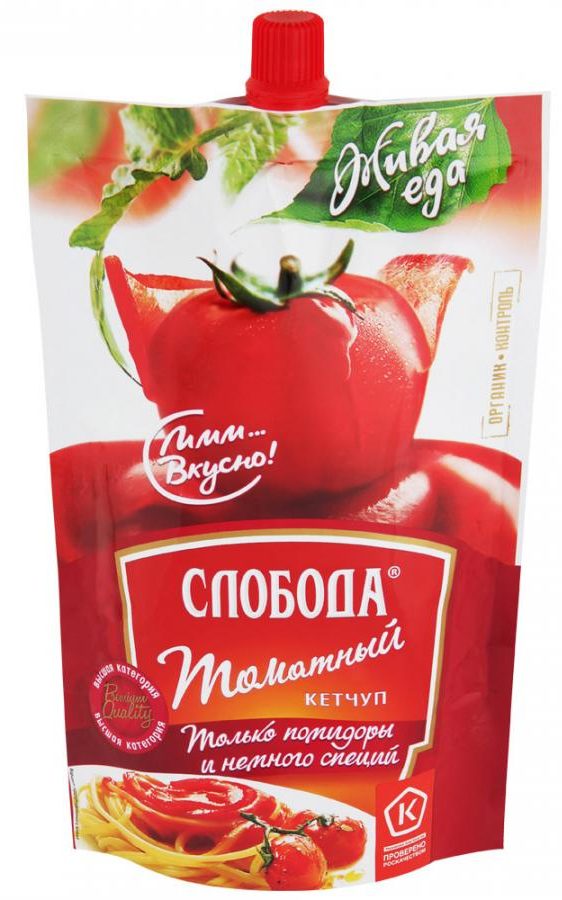
Sloboda
votes 3
Winner of the Russian award Quality Mark. Contains only natural ingredients, spices (cinnamon, cloves), salt, sugar, vinegar. Possesses the balanced taste and a uniform consistence. The smell is not fresh tomatoes, of course, but pleasant.
According to the results of the Roskachestvo check, the composition of the product fully corresponds to the declared one, and the shelf life of 180 days indicates the absence of preservatives (including benzoic acid) in the composition.
Country of origin - Russia, doypack packaging, product weight 350 g, price - from 60 rubles
- compound;
- color;
- optimal packaging.
- some users noted a clear acetic acid;
- Lack of spice and spiciness.
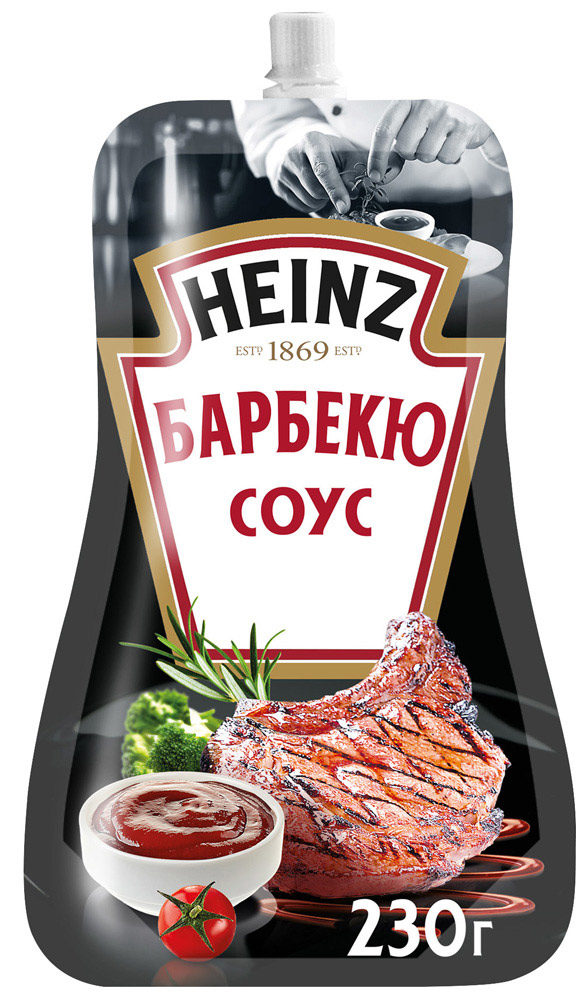
HEINZ Barbecue
votes 2
A versatile sauce that is equally suitable for grilled meat and fish. The composition, of course, is far from natural. The list of ingredients includes both thickeners and stabilizers. The manufacturer did not specify the ratio of tomatoes.
The color is nice, red. The texture is thick and uniform. The taste is not bad, with a distinct acetic note (natural vinegar is used). The calorie content is decent, so for those who are on a diet it is better not to abuse it, children should not be given either.
Brand country - USA, packaging - doypack, price for 230 g - 80 rubles
- good balance of sharpness, acidity and sweetness;
- price-quality ratio;
- Convenient to take with you on a picnic.
- compound;
- pronounced acetic acid, which becomes brighter when heated (it is better to serve separately);
- no information about the shelf life after opening, only the temperature regime is indicated.
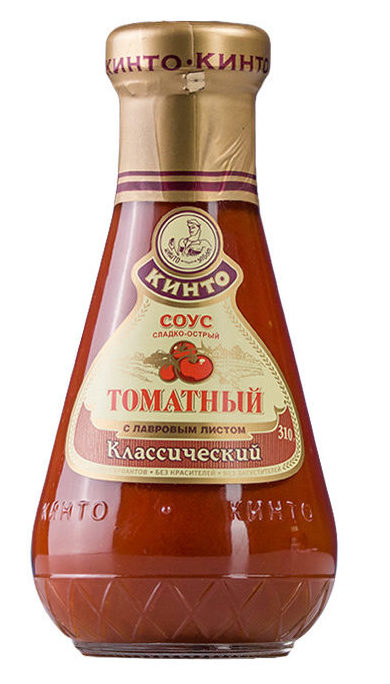
KINTO Classic
votes 0
Pasteurized product without preservatives. There are no complaints about the composition - tomato paste, salt, pepper, bay leaf. The only question is for acetic acid. The rest is a universal sauce for cooking (instead of tomato paste), and for use as a seasoning.
The color is pleasant, rich red, the taste and aroma are not bad. True, if you like it spicier, it is better to choose another option.
Country of origin - Russia, packaging - glass jar, price for 310 g - about 150 rubles
- correct container;
- natural ingredients;
- price-quality ratio;
- can be given to children.
- fresh;
- almost no spices.
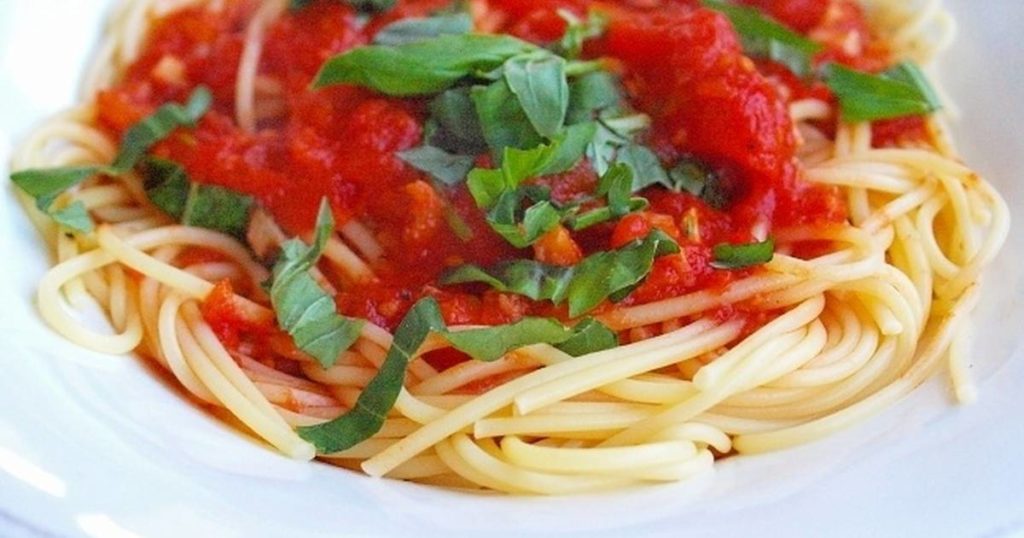
The best tomato sauces under 300 rubles
Dolmio Traditional
votes 2
Pieces of tomatoes with basil, pepper and spices. Free of monosodium glutamate, starch and flavors. A little watery, but not critical. The taste is fresh, without sharpness. The manufacturer also saved on salt.
Of course, it has nothing to do with real Italian sauce, but the rest is a good semi-finished product, if you add spices and salt. Reviews are mixed, but most users rated the product a solid 4.
Sold in a glass jar, the price for a package of 500 g is about 200 rubles
- package;
- several packaging options;
- good fragrance;
- citric acid as a preservative.
- water is in the first place in the composition (this, probably, explains the presence of stabilizers in the list of ingredients);
- high sugar content;
- fresh, if you like it spicier, you will have to add pepper and seasonings.
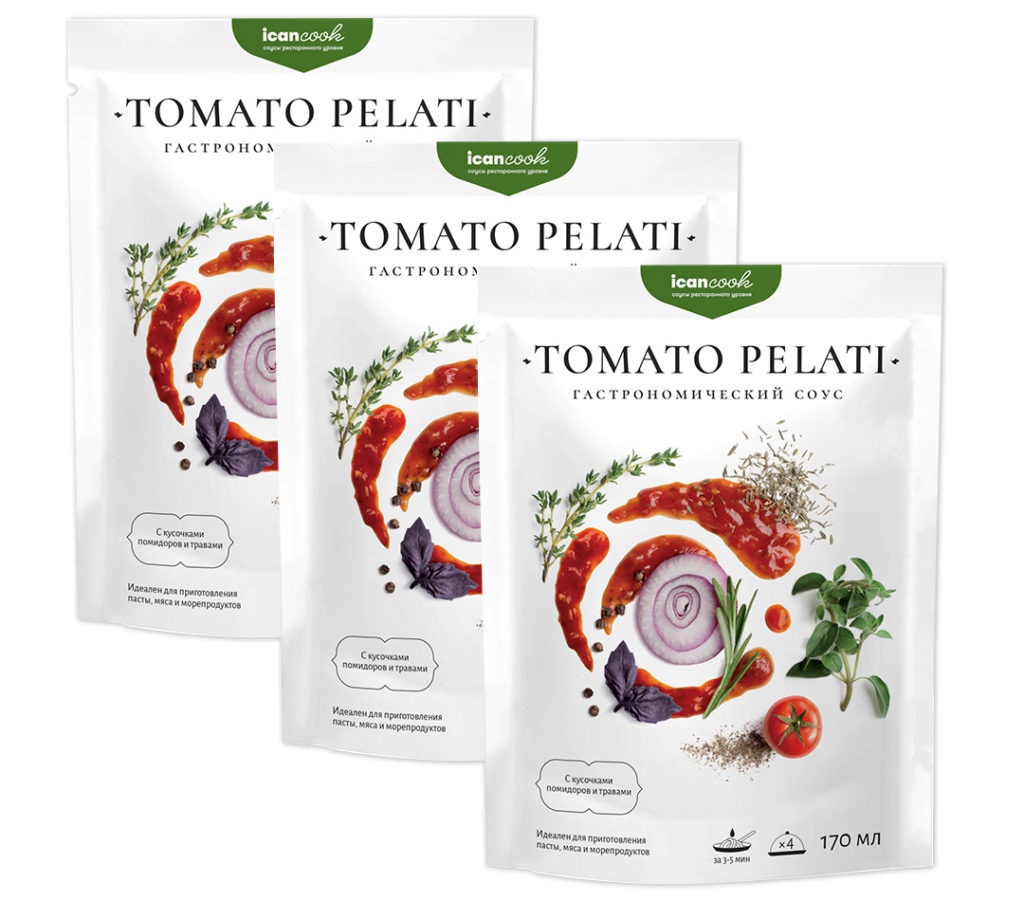
Icancook Pelati
votes 1
Natural, from 2 types of tomatoes, with the addition of herbs, vegetable juice, wine vinegar and pea starch. The latter, by the way, is far from last. The consistency is homogeneous, without pieces. The taste is balanced, spicy, not spicy.
Reviews are only positive, users note that Pelati can be added when preparing hot dishes or directly on a plate with boiled or fried fish, pasta.
Country of origin - Italy, 170 ml doypack, price about 200 rubles
- versatility of application;
- natural ingredients;
- rich tomato-spicy aroma.
- the presence of starch;
- small volume;
- high price for the declared composition.
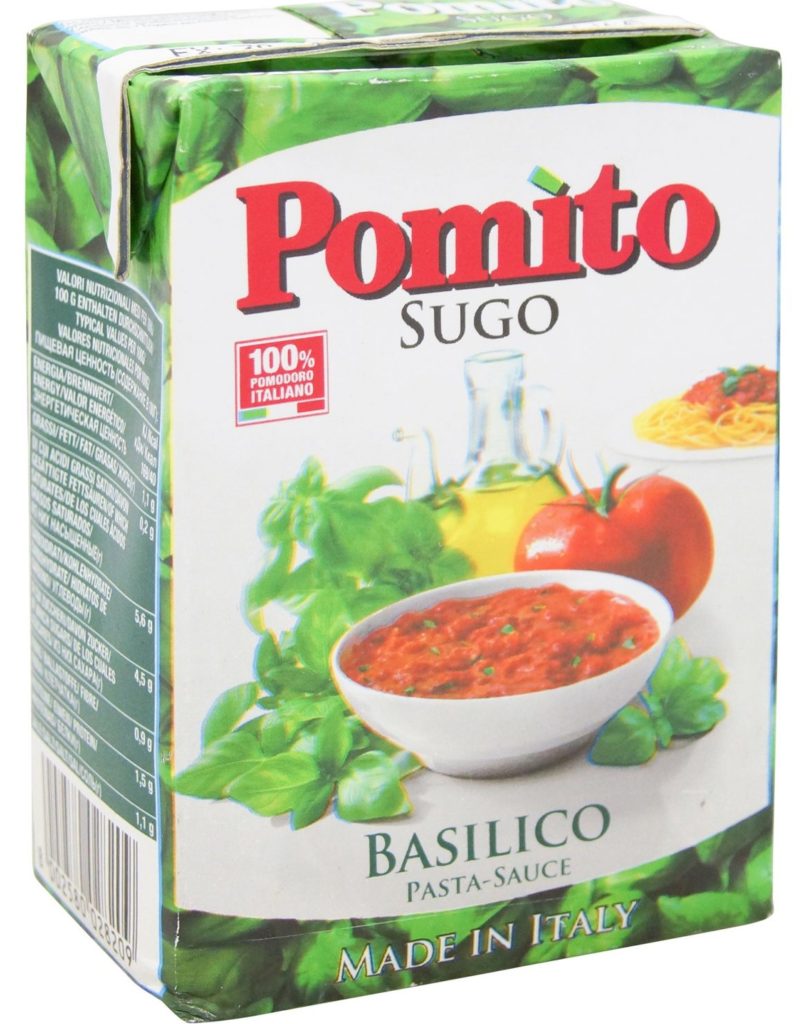
POMITO with basil
votes 1
Ideal for making pasta, contains spices, basil, olive oil. The taste is fresh, tomato, mild, without acid. Consistency is homogeneous, does not exfoliate when heated. There is starch in the composition, but it is almost in last place on the list, so it is practically not felt.
Tetra-pack packaging retains all the useful properties of the product, protects against oxidation. But it is not recommended to store it for more than 5 days after opening.
Country of origin - Italy, packaging - tetra-pack, price for 370 g - 170-200 rubles
- balanced taste, without acid;
- olive oil in the composition;
- suitable for any dishes;
- does not contain pepper and vinegar - can be given to children.
- no.
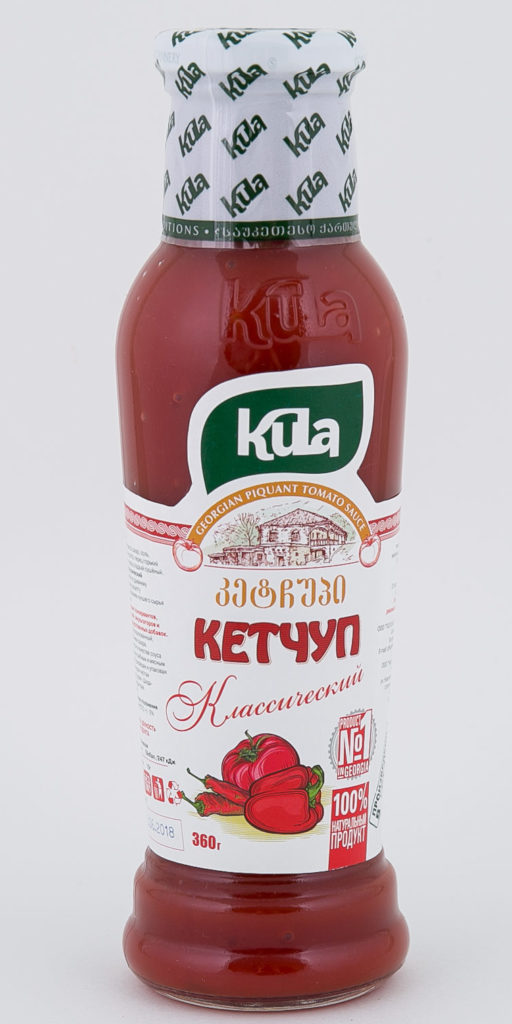
Kula, classic
votes 1
No monosodium glutamate, no preservatives. The list of ingredients includes only pasta, sweet and hot peppers, sugar and, unexpectedly, acetic acid. The taste is sweetish, without spiciness, so not everyone will like it. The rest is a good product, that's true, the pricing is not entirely clear.
Country of origin - Georgia, packaging - glass bottle, price for 350 g - 280 rubles
- without dyes, monosodium glutamate;
- eco-friendly packaging;
- homogeneous pasty consistency.
- overpriced for tomato paste, even with the addition of pepper.

Ketchup Mutti
votes 0
Produced in Italy, 56% tomato content, plus salt, sugar, wine vinegar and natural flavors. Consistency - thick, homogeneous. Color is intense red. The taste is refreshing, natural, with a slight pleasant (not acetic) sourness.
The packaging is a standard glass jar with a screw cap.All the necessary information about the composition, energy value is on the sticker-sticker.
By the way, this brand also produces pizza sauces, concentrated tomato pastes and simply pureed tomatoes.
Country of origin - Italy, volume 340 g, price - 250 rubles
- thick texture;
- moderately spicy and sour;
- natural ingredients, although the presence of albeit natural, but flavorings, is a little confusing;
- high content of tomatoes.
- no.
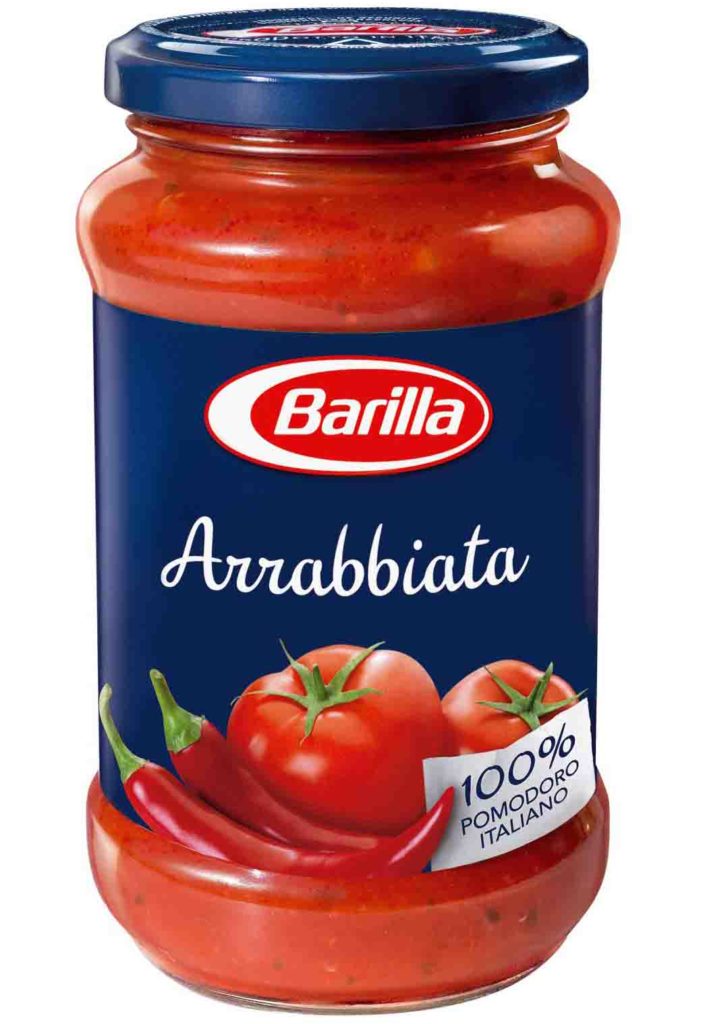
Barilla Arabiata
votes 0
100% natural product from a pasta manufacturer. Contains crushed tomatoes (87% content), chili peppers, garlic and tomato paste. No vinegar or citric acid. The sauce is spicy, but in moderation, without a burning aftertaste, the aroma is natural, tomato-spicy.
The storage period indicated on the bank is 2 years, but this is in closed form. When opened, the product should be stored in the refrigerator for no more than 4 days.
Brand country - Italy, volume - 400g, price - 278 rubles
- does not contain starch, dyes and preservatives;
- homogeneous texture interspersed with herbs, spices;
- pleasant aroma;
- versatility of application.
- large volume (the sauce spoils quickly, so if you use such seasonings from time to time, it is better to take a smaller jar).
The best tomato sauces worth from 500 rubles
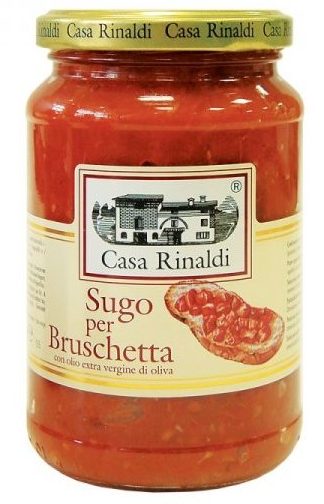
Casa Rinaldi Bruschetta
votes 0
Rich taste and bright aroma without dyes, flavors and sugar. It contains only finely chopped tomatoes, oregano, basil, onion and garlic, plus olive oil. Color natural, red. The consistency is pasty, thick.
The product is recommended by the manufacturer for making bruschetta, but it goes well with any dishes.It will add a bright taste to pasta or boiled fresh fish. By the way, due to the lack of sugar, the product is suitable for those who are on a diet.
Country of origin - Italy, packaging - glass jar with a screw cap, price for 350 g - 560 rubles
- compound;
- package;
- piquant taste.
- may seem fresh.
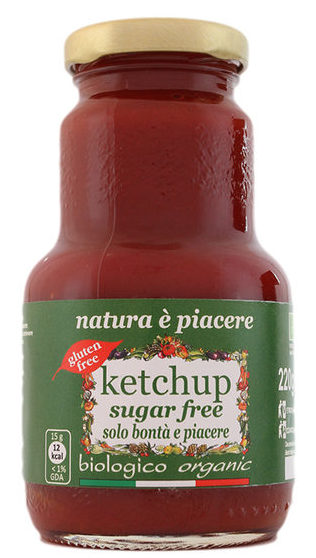
Natura e'Piacere
votes 0
High price and standard composition, with a 66% tomato content, with the addition of sea salt, cane sugar and wine vinegar. The taste is good, but nothing extraordinary. It is possible that the prefix "BIO" on the label influenced the pricing.
Country of origin - Italy, packaging - glass bottle, price for 350 g - 746 rubles
- does not contain preservatives and dyes;
- produced from environmentally friendly raw materials;
- pasty consistency.
- overcharge.
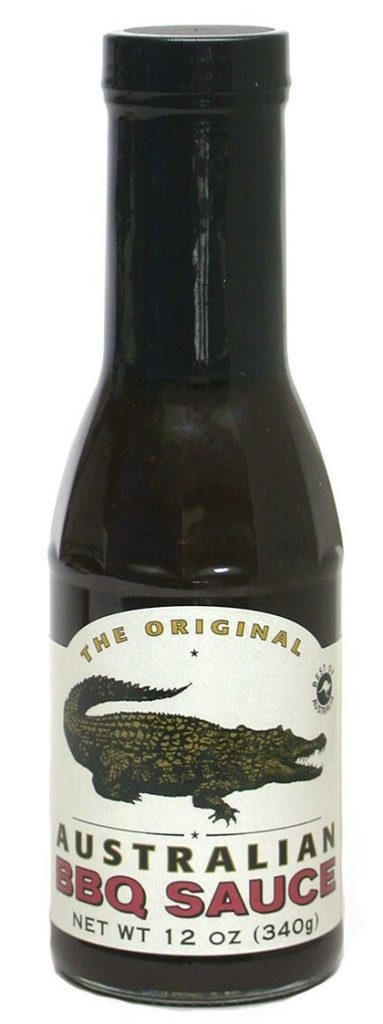
The Original Australian Barbecue
votes 0
A product with an unusual composition. In addition to tomato paste, the list of ingredients includes: cane juice, honey, tamarind (a fruit with dense aromatic pulp), concentrated apple juice.
It tastes sweet, with a slight garlic flavor (garlic powder is in the last place in the composition), the consistency is homogeneous, without pieces. Suitable for grilled meat, barbecue or ribs. But if you appreciate the spiciness in the sauce, it is better to look for another option.
Country of origin - Australia, packaging - glass, price - from 700 rubles per 340 g
- unusual taste;
- without acid;
- well emphasizes, but does not interrupt the taste of meat.
- for an amateur;
- price.
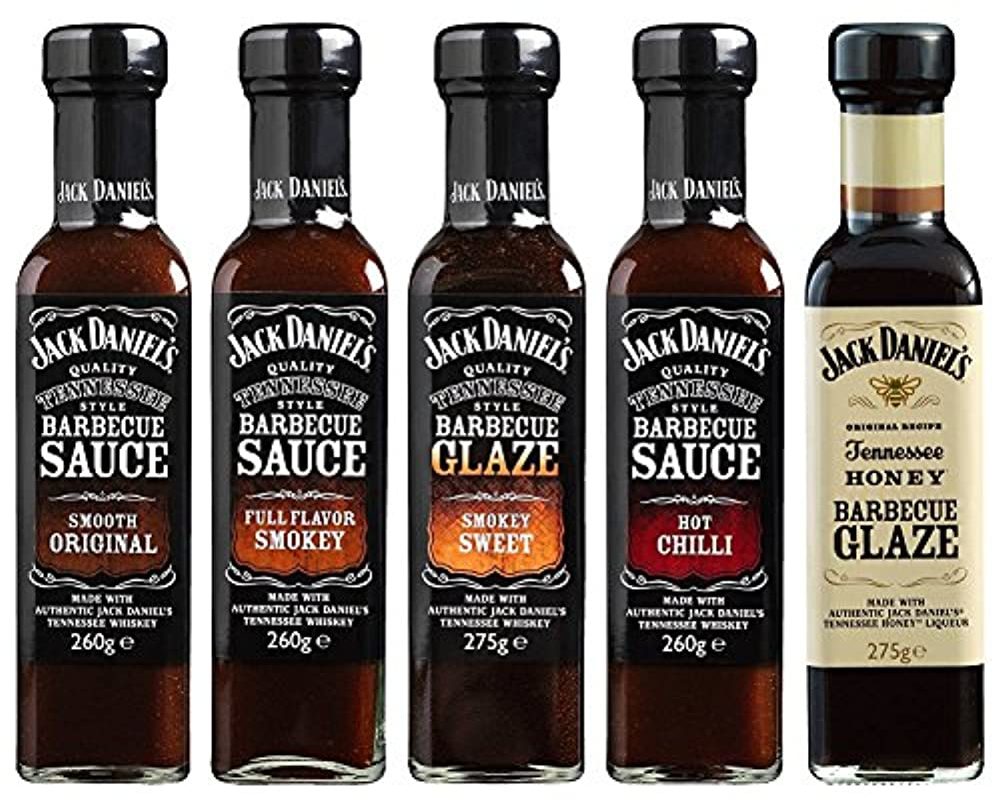
Jack Daniel's Barbecue
votes 0
With a bright alcohol flavor, grape juice and tamarind, it goes well with chicken wings and steaks. The composition is far from natural - there are preservatives, and stabilizers, and flavoring.
With prices, too, everything is not entirely clear, prices on different Internet sites differ by 2 times (with the same volume).
Brand country - Great Britain, price - 400-800 rubles per pack of 260 g
- recognizable brand;
- unusual taste and composition;
- good fragrance.
- not everyone will appreciate the taste of fermented wine.
If you do not like to experiment - choose classic tomato sauces with spices, if you like spicy - pay attention to the composition. The list of ingredients should include hot peppers, garlic. If you prefer the natural taste of tomatoes, look for a product with a minimum amount of ingredients.
new entries
Categories
Useful
Popular Articles
-

Top ranking of the best and cheapest scooters up to 50cc in 2025
Views: 131651 -

Rating of the best soundproofing materials for an apartment in 2025
Views: 127691 -

Rating of cheap analogues of expensive medicines for flu and colds for 2025
Views: 124519 -

The best men's sneakers in 2025
Views: 124033 -

The Best Complex Vitamins in 2025
Views: 121940 -

Top ranking of the best smartwatches 2025 - price-quality ratio
Views: 114980 -

The best paint for gray hair - top rating 2025
Views: 113395 -

Ranking of the best wood paints for interior work in 2025
Views: 110319 -

Rating of the best spinning reels in 2025
Views: 105330 -

Ranking of the best sex dolls for men for 2025
Views: 104367 -

Ranking of the best action cameras from China in 2025
Views: 102216 -

The most effective calcium preparations for adults and children in 2025
Views: 102011



